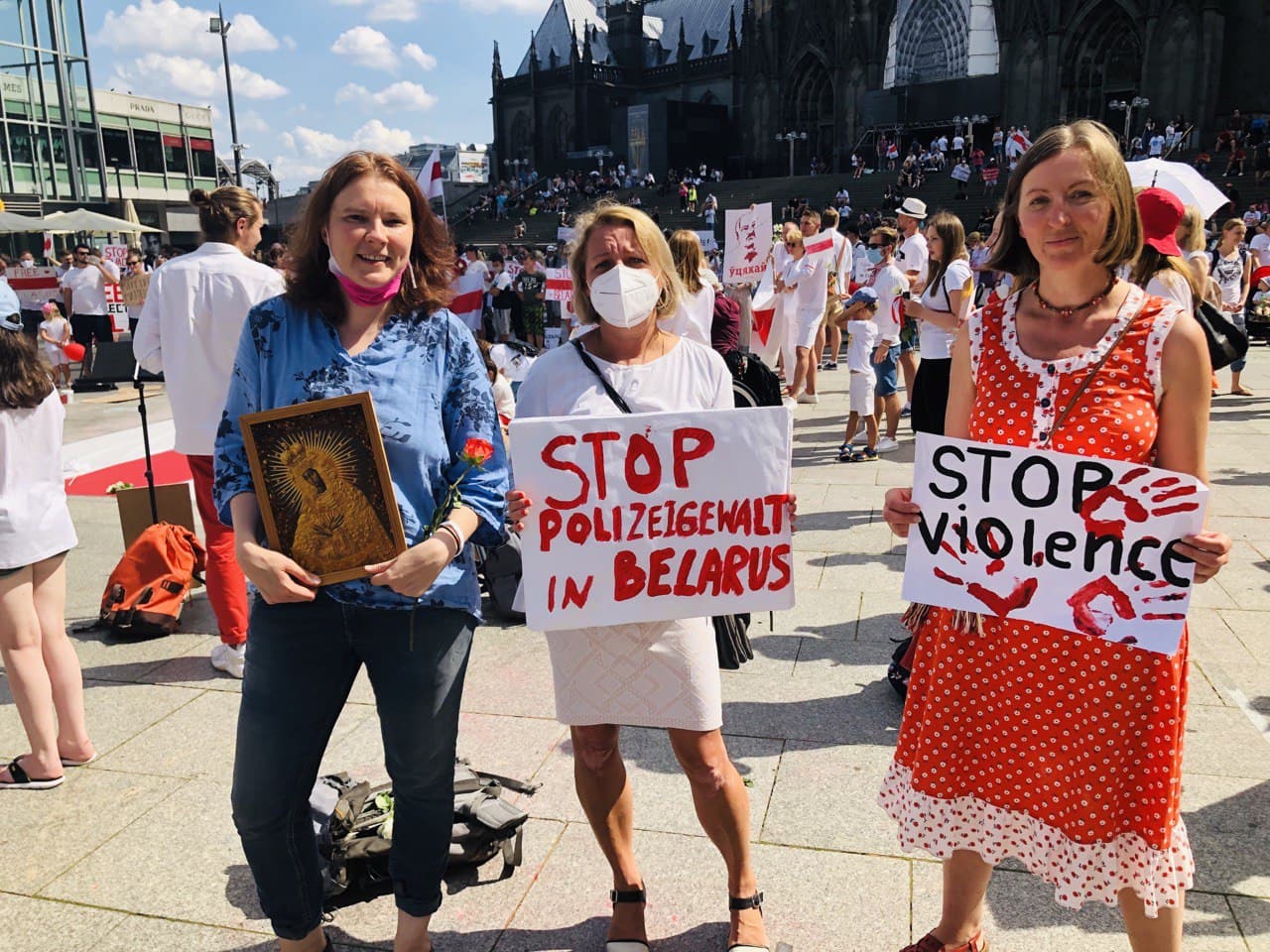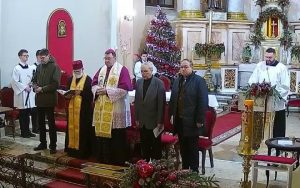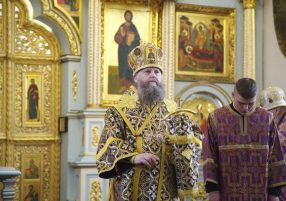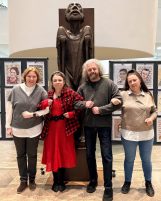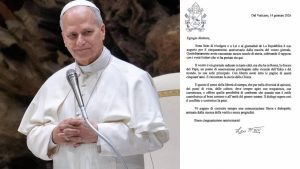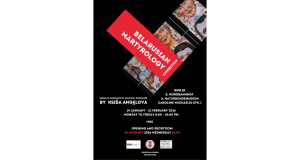Christians in the Struggle for Justice in Belarus
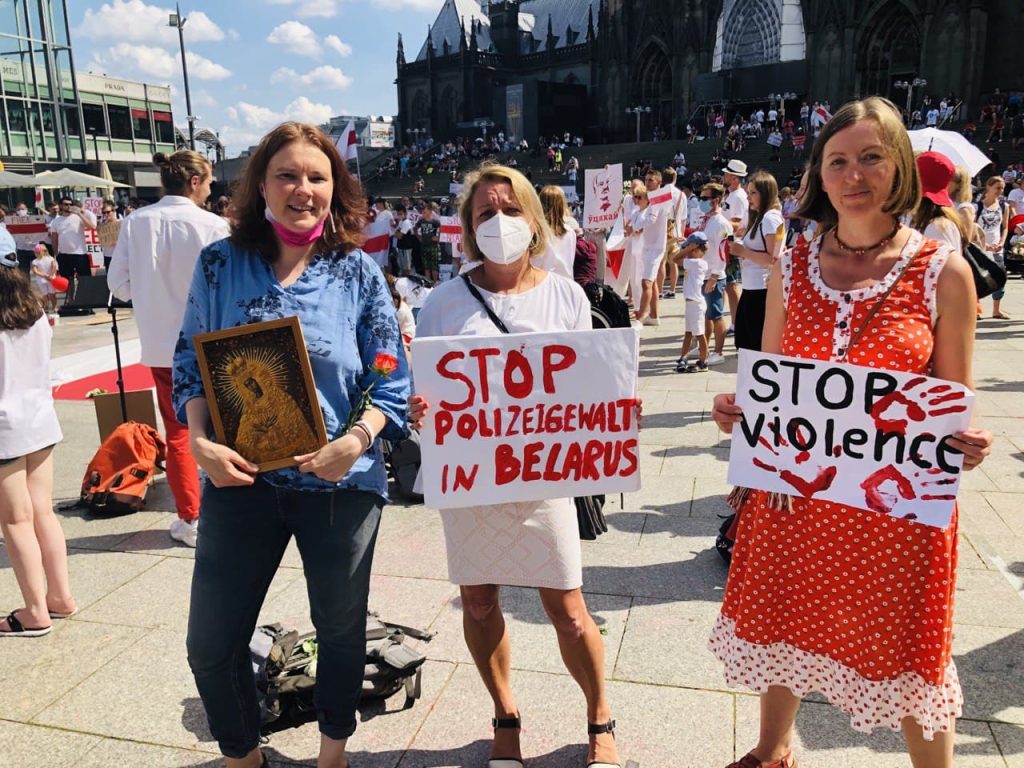
30 July 2021 Natallia Vasilevich spoke at the thematic session of the Extraordinary Virtual General Assembly (V-GA) of the World Student Christian Federation, which took place from 29-31 July. WSCF is the oldest ecumenical organisation in the world, and it had intense and warm relations with the Russian Orthodox Church: its first secretary general John Mott spoke at the famous 1917-1918 Moscow Council. Natallia Vasilevich was delegated by the WSCF (Europe) to deliver an input on the following topic “Looking for justice in a world which is suffering” on the role of Christians and Churches in Belarusian movement for truth, peace and justice. She shared he reflection on the role which Christianity with it witness of the teaching of Christ and the principles of the Kingdom of God shall play and actually plays in actual civil and political process.
Since 1994, Belarus has been ruled by a populist regime presenting itself as a champion of care about the people, social justice, and harmony. In reality, paternalism was an excuse for President Lukašenka to concentrate power and control over the government, law enforcement, the Parliament, the judiciary, local authorities, economy, education, media, and academia, while political opponents faced persecutions.
In the crooked mirror of the regime, the meanings of the words were twisted.
Like an abusive parent, the regime deprived people of their subjectivity, gaslighted them, and sought control. In the crooked mirror of the regime, the meanings of the words were twisted. The notions of love and care masked pursuit of control, “protection of traditional values” covered human rights’ violations, “social justice” disguised excessive engagement of the state in all domains of social life; repressions were called “security”, oppression was dubbed “unity”, fear was titled “support”, and violence was described as “peace”.
The Churches, because of fear or because of privileges, mainly maintained loyalty either through passive silence or even through active support.
The Churches, because of fear or because of privileges, mainly maintained loyalty either through passive silence or even through active support. Few Christians and communities openly expressed their concerns over the violations of human rights, raised their voice against injustice and advocated for clearing of names.
The COVID-19 pandemic turned out to be an event of apocalyptic nature, as it removed the cover from the reality.
The COVID-19 pandemic turned out to be an event of apocalyptic nature, as it removed the cover from the reality. The regime chose the “blind eye” strategy, denying and ignoring the threat, the preventive measures, the deaths of people, and the needs of medical workers. On the contrary, the people’s eyes were healed from blindness as if by the clay made by Jesus from the spittle (John 9:6). Facing a common threat, left without governmental support, Belarusians mobilised for a solidarity campaign with medical workers, restoring their own subjectivity through common action and responsibility.
This solidarity also spilled into political participation during the presidential elections in August 2020, where people mobilised for the cause of fair elections. The regime put all strong candidates in prison and, as an alternative candidate, chose the weakest and the most vulnerable housewife Sviatlana Tsikhanouskaja, with zero political experience, zero political ambitions, and a husband in jail. However, “God chose the weak things of the world to shame the strong” (1 Cor. 1:27). Stolen votes made people launch a longstanding nationwide peaceful protest, which the regime met with violence and tortures.
Like COVID-19 has awakened the Belarusian people, the ongoing political crisis and its extreme moral acuteness have awakened Christians and facilitated the development of a new, socially concerned ethos and identity of the churches.
Unfortunately, Christians and the Churches were not on the front line to start the fight for justice. Moreover, many faithful and church leaders stood up for the regime claiming that the church should keep neutrality in political matters. Yet, there were many who understood their mission not from a political but an ethical standpoint, and raised their voices in prayers, sermons, and public statements. Like COVID-19 has awakened the Belarusian people, the ongoing political crisis and its extreme moral acuteness have awakened Christians and facilitated the development of a new, socially concerned ethos and identity of the churches, as well as strengthened lay initiative and ecumenical cooperation. Consider, for example, activities of the Christian Vision group, which relies on the power of the Gospel message of justice and solidarity and uses theology as a strong instrument for analysis and solutions, for inspiration and empowerment.
The Belarusian people have chosen a noble path of non-violence over violence, dialogue over revolution, new fair elections in pursuit of legitimate demands—over forceful seizure of power.
For their commitment to the peaceful, democratic, and lawful approach, however, the Belarusian people have had to pay a very high price—the price of blood, wounds, traumas, tears, imprisonment, exile, insecurity, injustice, and, finally, the price of time. The Belarusian people have chosen a noble path of non-violence over violence, dialogue over revolution, new fair elections in pursuit of legitimate demands—over forceful seizure of power. They are exposed and defenceless against the machinery of repressions, tortures, authoritarian power, and violence, but they are also very strong. They are a great but vulnerable force, and they need solidarity.




